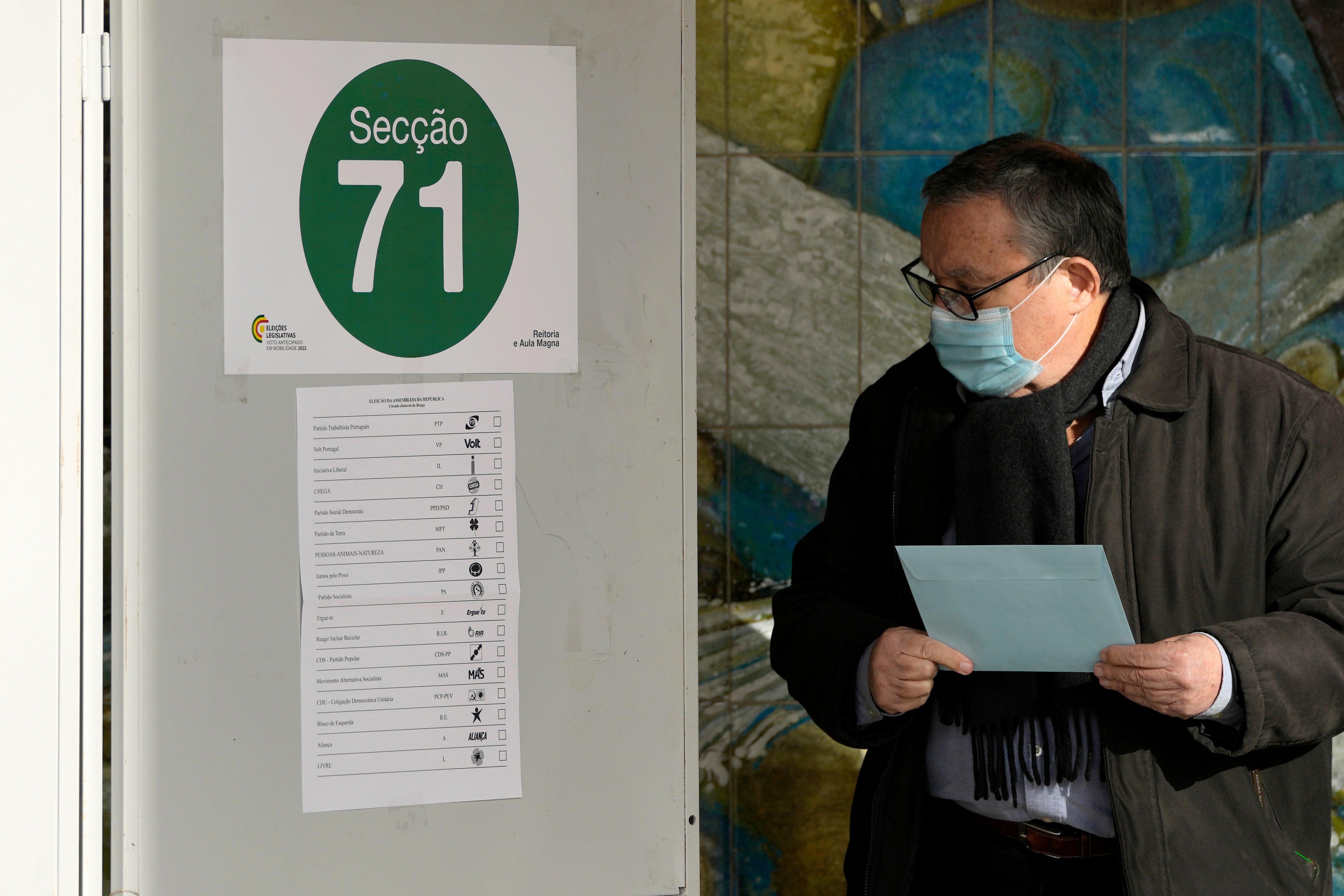Portugal picks new government with $50B of EU funds on table
Portugal is holding an early election that looks set to produce another vulnerable minority government

Portuguese voters went to the polls Sunday in an early election that looked set to produce another vulnerable minority government, just as the country is poised to start spending a huge windfall of European Union funds.
That outcome would leave Portugal back where it started two months ago, when lawmakers rejected the minority Socialist government’s spending bill and the country’s president dissolved parliament.
The center-left Socialists and their main rivals, the center-right Social Democratic Party, were in a tight race, opinion polls suggested.
Those two parties traditionally collect around 70% of the vote and have for decades alternated in power in Western Europe’s poorest country.
The landslide victory needed to form a majority government, which can pass most legislation despite opposition in parliament, is rare. Portugal has had just three majority governments in the past half-century.
That means one of the two main parties likely will have to form parliamentary alliances by cutting deals with smaller parties.
The stakes are high: Portugal, a country of around 10.3 million people, is poised to begin deploying some 45 billion euros ($50 billion) of aid as a member of the EU to help spur the economy after the COVID-19 pandemic.
Two-thirds of that sum is intended for public projects, such as major infrastructure, giving the next government a financial bonanza. The other third is to be awarded to private companies.
The ballot took place amid a surge in COVID-19 cases blamed on the omicron variant, with about 1.2 million people confined at home but allowed to go to polling stations to cast their vote.
President Marcelo Rebelo de Sousa in an election-eve address to the nation, urged people to vote, saying it is “a way of saying that ... nothing, and nobody, can silence our voice.”
He said the coming years would be marked by “leaving behind a painful pandemic (and) an urgent rebuilding of the economy.”
Since it came to power in 2015, the Socialist Party had relied on the support of their smaller allies in parliament — the Left Bloc and the Portuguese Communist Party — to ensure the annual state budget had enough votes to pass.
But last November their differences, especially over public health spending and workers’ rights, were insurmountable, leaving Socialist Prime Minister António Costa short of votes to pass his party’s plan.
Costa could seek to resurrect the left-of-center alliance, despite some acrimonious exchanges during the election campaign.
The Social Democrats, meanwhile, may have to deal with a surge in support for the Chega! (Enough!) populist party, whose policies Social Democratic Party leader Rui Rio finds distasteful.
The Social Democrats have also in the past joined forces with the smaller Popular Party.
The Socialist Party promises to increase the minimum monthly wage, earned by more than 800,000 people, to 900 euros ($1,020) by 2026. It is currently 705 euros ($800). Low wages are a common grievance among voters.
The Socialists also want to “start a national conversation” about working four days a week instead of five.
The Social Democratic Party is promising income tax cuts and more help for private companies, cutting corporate tax from the current 21% to 17% by 2024.
The winner will also have more deep-rooted problems to address, including an economy that can’t get traction.
Portugal’s economy has been falling behind the rest of the 27-nation EU since 2000, when its real annual gross domestic product per capita was 16,230 euros ($18,300) compared with an EU average of 22,460 ($25,330).
By 2020, Portugal had edged higher to 17,070 euros ($19,250) while the bloc’s average surged to 26,380 euros ($29,750).
Bookmark popover
Removed from bookmarks